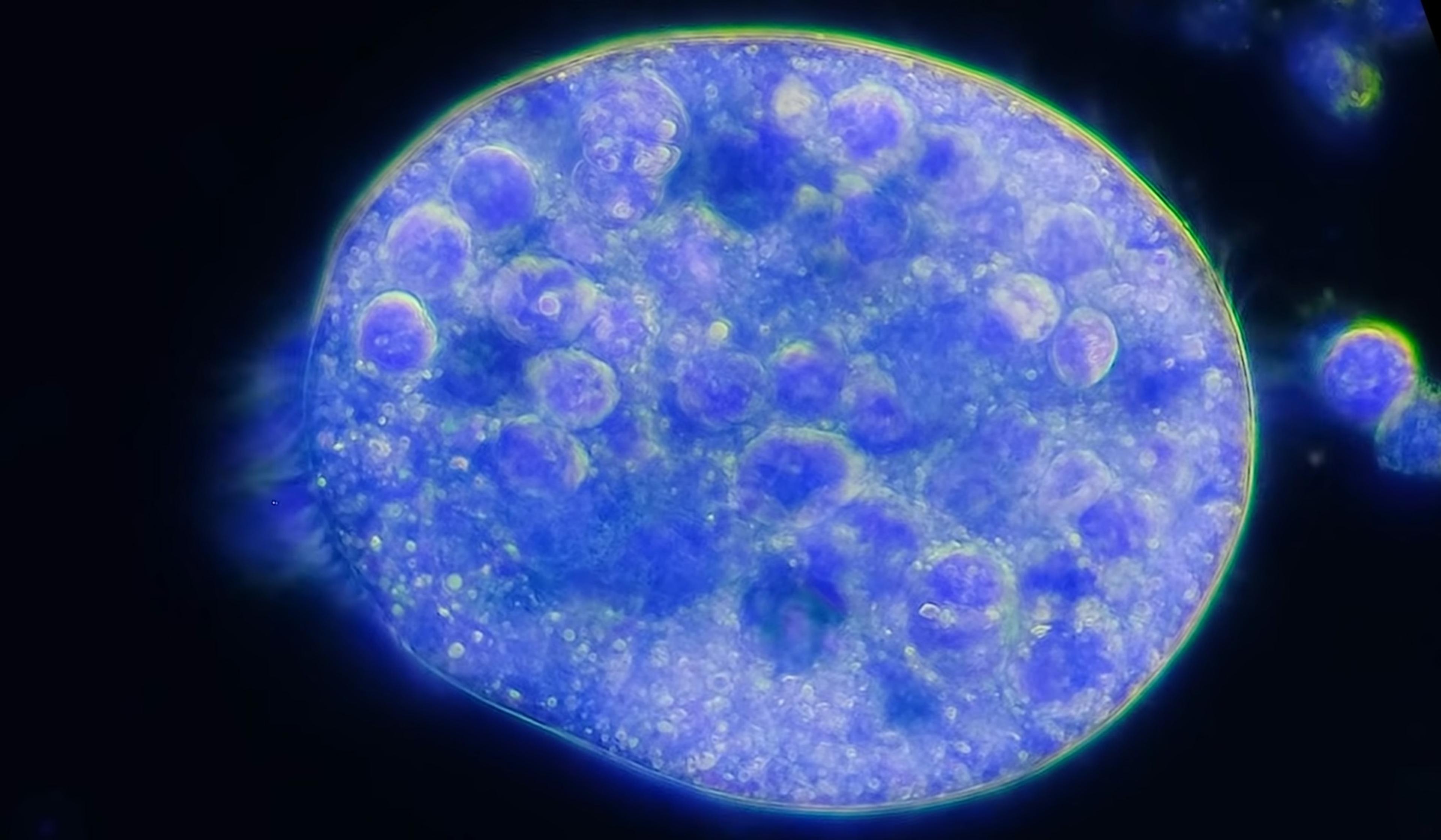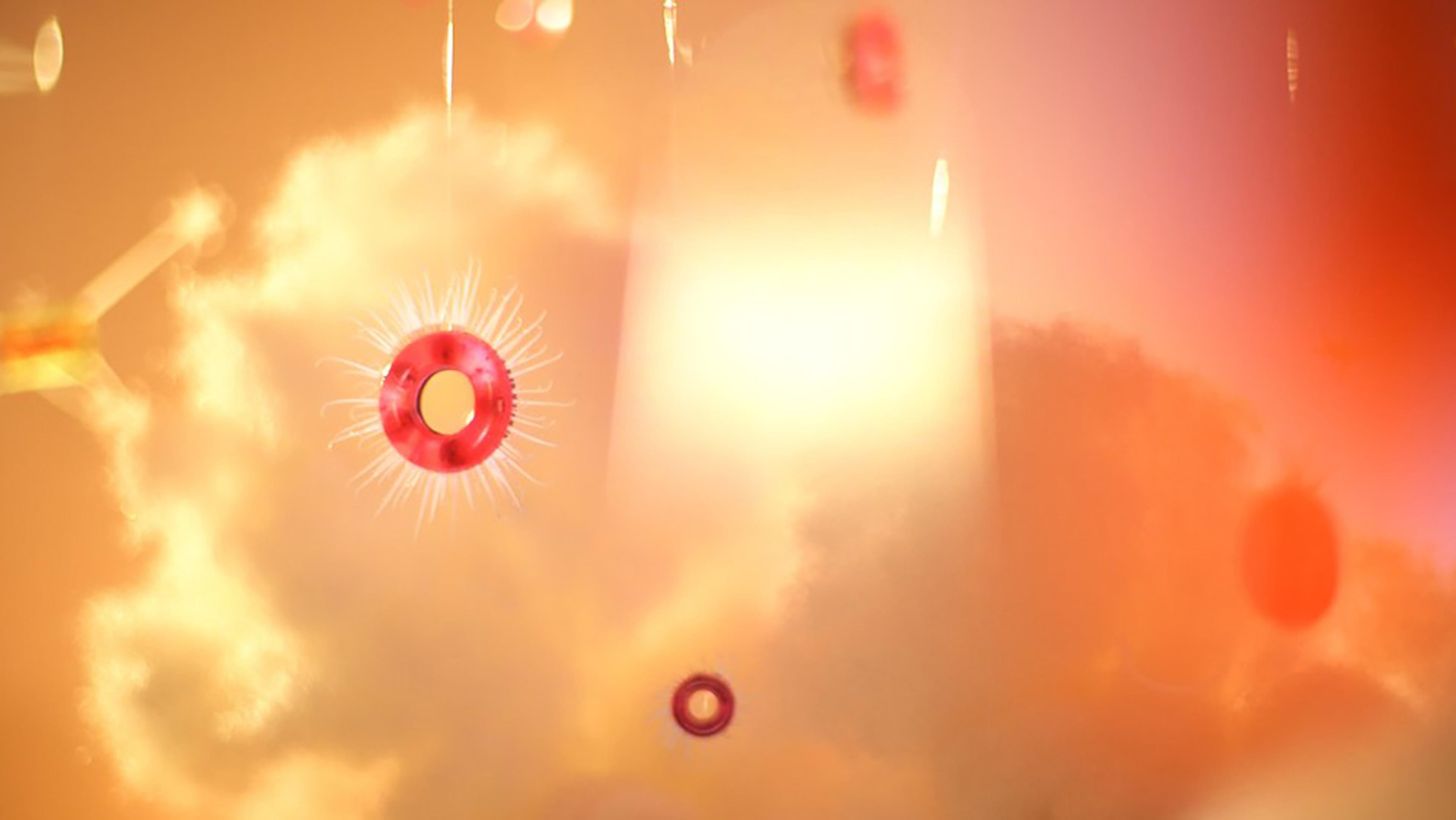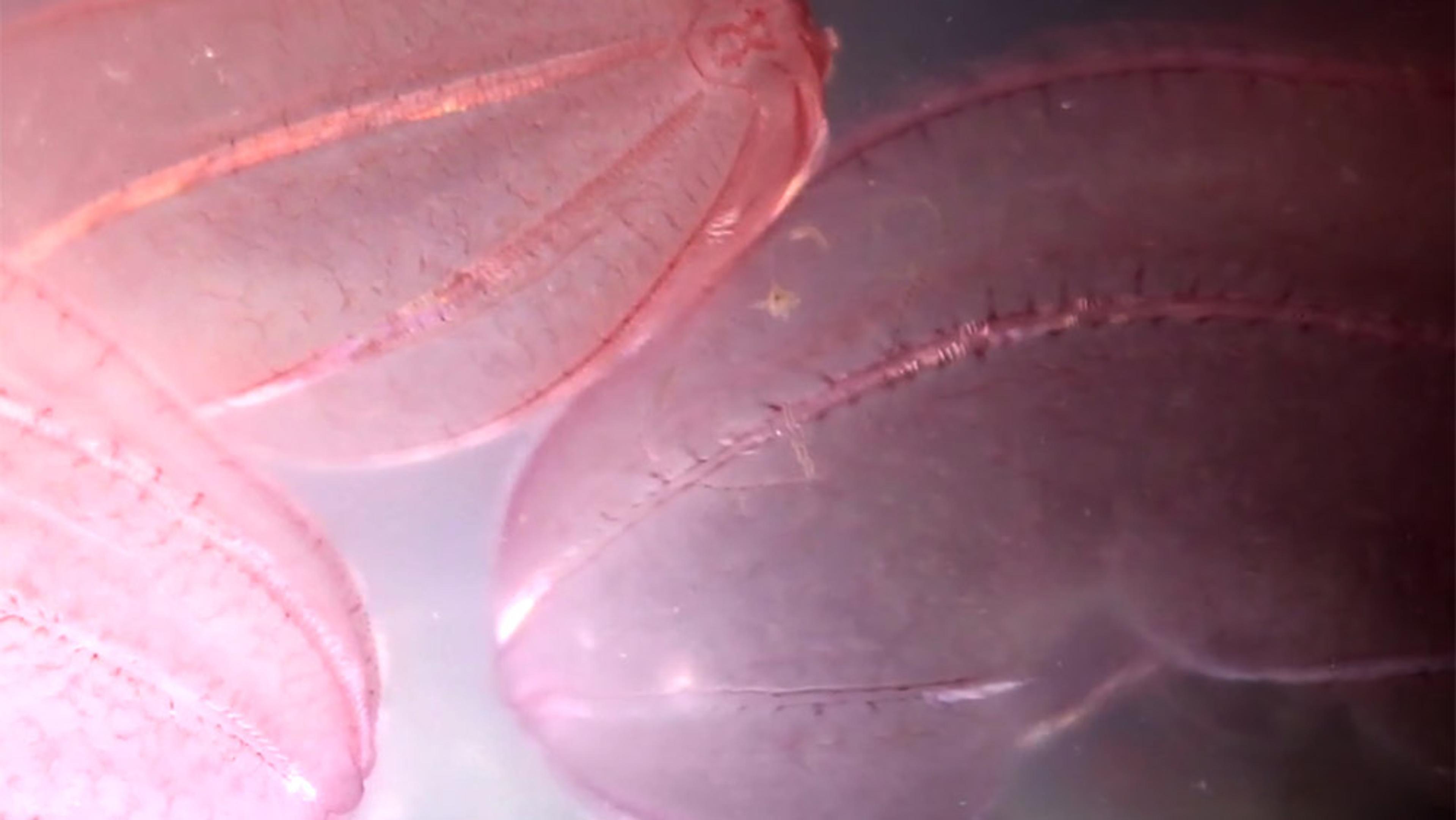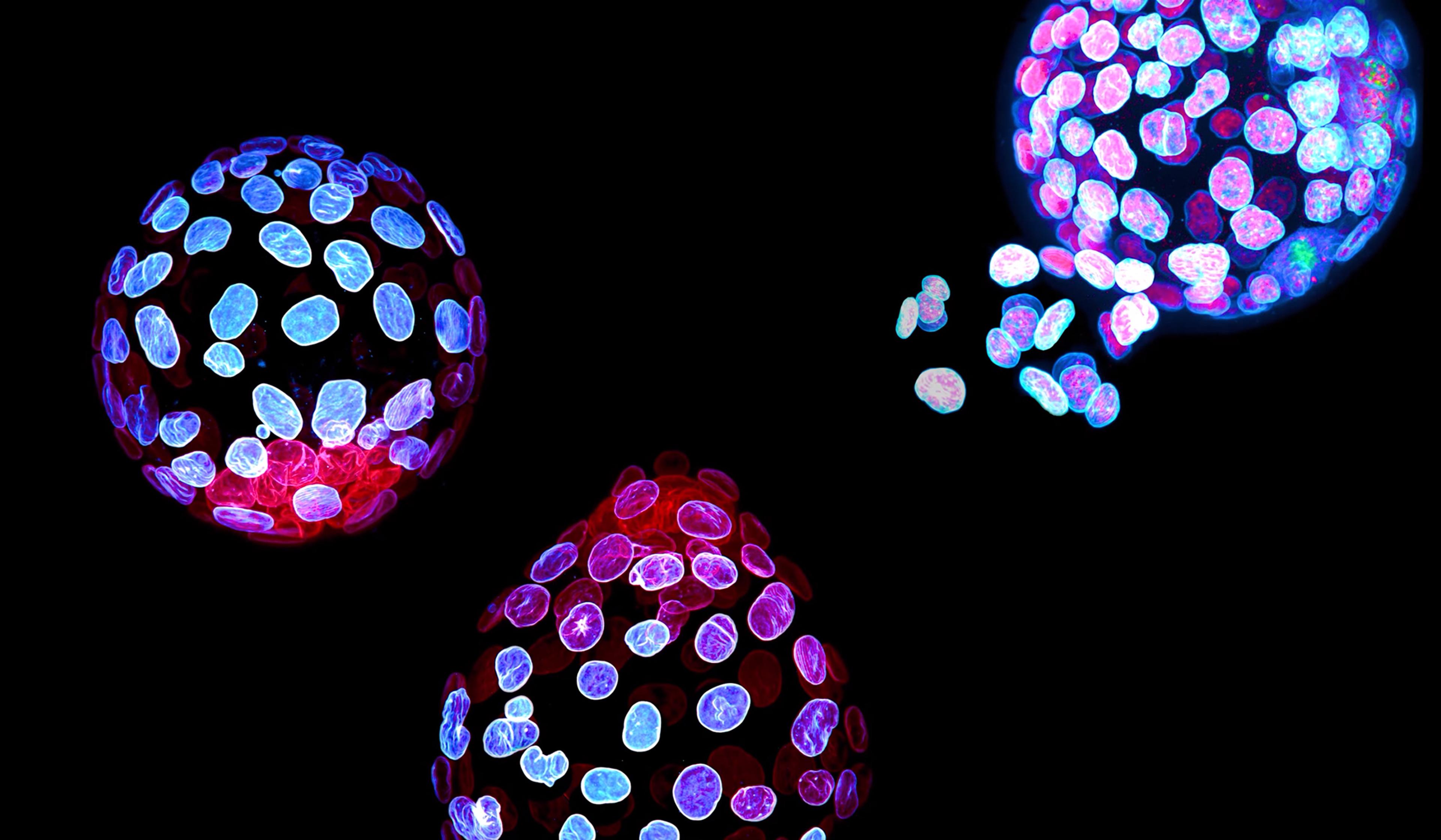‘What do you do when you see things that no one has ever seen before?’
When the Dutch scientist Antonie van Leeuwenhoek pointed a new, handcrafted microscope down into a jar of algae in 1674, he became the first person to learn of the microbial world. ‘And the motion of most of them in the water was so swift and so various, upwards, downwards, and round about, that I confess I could not but wonder at it,’ he later wrote to the Royal Society of London. What followed was one of the most outstanding cascades of scientific breakthroughs in history: from bacteria to protozoa to sperm to blood cells we learned that the vast majority of life is invisible to the naked eye and, in many cases, fundamentally inseparable from us.
This imaginative animation from Sweet Fern Productions probes van Leeuwenhoek’s first glimpses of the microbial world, as well as the indelible mark his work left on science and the ongoing quest to understand how microscopic life shapes our existence.








